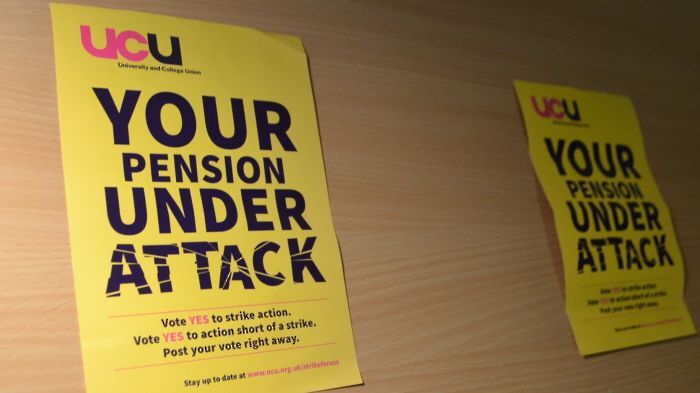Everything you need to know about the National Student Survey debate
The National Student Survey – proponent of higher education’s marketisation, or quality control?

The tension surrounding the controversial National Student Survey (NSS) will reach fever pitch this week as ‘Boycott the NSS’ campaigners are set to burn the bright-yellow NSS pamphlets in a bonfire this Saturday.
Today’s edition of Varsity also features a debate on whether students should complete the NSS. Pro-vice-chancellor for education, Graham Virgo, writes in its defence, against CUSU education officer Martha Krish and Cambridge Defend Education’s Matt Kite.
The NSS, commissioned by the government’s Higher Education Funding Council for England (HEFCE) and sent to final-year undergraduate students every year, is used to produce the Teaching Excellence Framework (TEF), an annual publication now in its third run. The TEF evaluates higher education institutions across three metrics – graduate employment, student retention, and student satisfaction – the third of which is evaluated using the NSS.
The framework awards gold, silver, bronze, and provisional standards to its 293 participating institutions. Those awarded gold and silver standards may then be allowed to raise their tuition fees. Following a vote in the House of Commons in April last year, the link between the TEF and tuition fees will only be introduced in 2020, and will require an independent review of the TEF to be presented to parliament.
The core questionnaire of the 2017 NSS asked students to rate their institutions by evaluating their level of agreement with 27 claims such as “Staff value students’ views and opinions about the course”.
Cambridge was one of 60 institutions awarded gold in the first ‘trial’ TEF published in June 2017; 115 institutions were awarded silver, and 53 bronze.
In 2017, the NSS became the target of widespread criticism, with the National Union of Students (NUS) advocating for a national boycott.
In Cambridge, CUSU and Cambridge Defend Education (CDE) supported the boycott alongside 25 student unions, urging eligible students not to take the survey. Leaders of the boycott claimed to have achieved success in August last year when Cambridge’s results for the NSS were declared invalid due to an insufficient turnout, joining 11 other universities, including Oxford, Manchester, and Bristol.
The CUSU and CDE campaign to boycott the NSS was renewed this year on 5th January – with the backing of Krish and Kite – just before the 2018 NSS was sent out to finalists on 8th January.
The campaign’s latest development, described on its Facebook event page as “a FIRE where we will ceremonially burn the horrible yellow nss leaflets currently being distributed”, will be “open to anyone who likes fire and left wing politics”.
Meanwhile, in his opinion article in Varsity today, Virgo defends the NSS, challenging Krish and Kite with his claim that “completing the NSS, whilst still constituting a metric for the TEF, will not have an impact on tuition fees.”
 Features / Should I stay or should I go? Cambridge students and alumni reflect on how their memories stay with them15 December 2025
Features / Should I stay or should I go? Cambridge students and alumni reflect on how their memories stay with them15 December 2025 News / Cambridge study finds students learn better with notes than AI13 December 2025
News / Cambridge study finds students learn better with notes than AI13 December 2025 News / Uni Scout and Guide Club affirms trans inclusion 12 December 2025
News / Uni Scout and Guide Club affirms trans inclusion 12 December 2025 Comment / The magic of an eight-week term15 December 2025
Comment / The magic of an eight-week term15 December 2025 News / News In Brief: Michaelmas marriages, monogamous mammals, and messaging manipulation15 December 2025
News / News In Brief: Michaelmas marriages, monogamous mammals, and messaging manipulation15 December 2025










